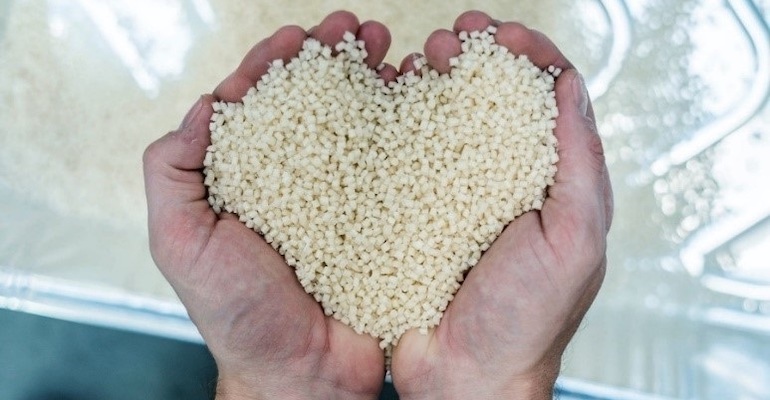
US, Japanese Firms Partner to Provide Carbon-Negative PP Compounds

Japan’s Sumitomo Chemical and California-based Newlight Technologies have begun joint development of polypropylene (PP) compounds for use in automobiles and textile applications using a carbon-negative biomaterial produced by microorganisms from methane called AirCarbon, which is based on polyhydroxybutyrate (PHB).
In this joint project, Newlight Technologies will develop new grades of AirCarbon suitable for use in automotive and textile applications, sourcing methane emissions captured and recovered from coal mining, agricultural, and industrial operations as the starting point for its production process.
Sumitomo Chemical will develop new compounds by blending resins from Newlight Technologies with PP. The materials will be used to manufacture automotive bumpers and interiors matching the quality of conventional PP compounds while lowering the environmental impact. The compounds also will be used in textiles that can be dyed.
Newlight Technologies has developed the world’s first commercialized biomaterial made from methane as a carbon source utilizing methanotrophs, microorganisms that exist in nature that metabolize methane. Third-party organizations have certified that the carbon footprint of AirCarbon is significantly negative when produced using renewable sources of energy for electric power. Newlight Technologies started operation of the world’s first commercial-scale manufacturing plant for AirCarbon in 2020, and has been supplying the biomaterial to a variety of customers.
Noriaki Takeshita, Representative Director and Senior Managing Executive Officer, Sumitomo Chemical, said: “Our PP compounding business is actively promoting the use of recycled PP to contribute to building a circular economy. By leveraging AirCarbon from Newlight Technologies, we will provide carbon-negative PP compounds to our customers.”
Newlight Technologies CEO Mark Herrema added: “The mission of AirCarbon is using nature-based solutions to create decarbonization at scale, and our work with Sumitomo helps us move closer to that goal. We are excited to team up with Sumitomo and look forward to seeing applications on the market that help automotive partners meet their carbon reduction goals.”
Methane exhibits a greenhouse effect approximately 25 times that of carbon dioxide, and its reduction is crucial to effectively curb global warming. The 26th United Nations Climate Change Conference (COP26) in 2021 launched an international framework aimed at reducing methane emissions.

Leave a Reply